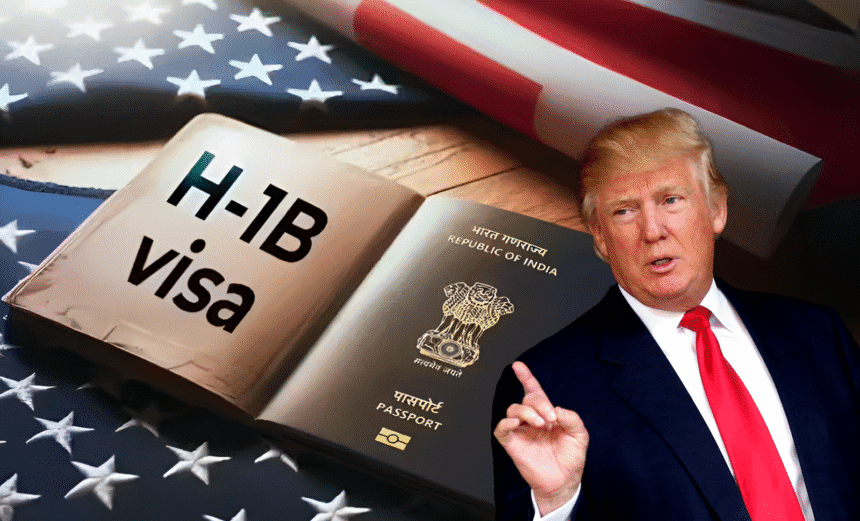The H-1B visa program, a critical component of U.S. immigration policy that allows companies to hire foreign workers in specialized fields, is undergoing significant changes under reforms introduced during the Trump administration. These reforms are set to reshape how employers access global talent, sparking intense debate among businesses, universities, workers, and policymakers.
The H-1B visa is a non-immigrant visa designed for workers in occupations requiring highly specialized knowledge, typically in technology, engineering, medicine, and finance. It has served as a pathway for foreign professionals, especially from India and China, to contribute to the American economy. Each year, the U.S. grants 85,000 new H-1B visas, with 20,000 of them specifically reserved for applicants who hold advanced degrees from U.S. universities. The program has long been seen as a bridge between global talent and American innovation.
Under the Trump administration’s reforms, however, the structure of the H-1B program is being tightened to prioritize American workers. Employers are now required to meet higher salary thresholds when hiring H-1B workers, reducing the incentive to use foreign labor as a cost-saving strategy. The existing lottery system that randomly selects visa applicants is being phased out in favor of a merit-based process that prioritizes candidates with advanced degrees or rare expertise. In addition, employers will face stricter scrutiny, as they must prove that no qualified U.S. worker is available before bringing in foreign talent. Renewal processes are also becoming more difficult, raising uncertainty for visa holders who seek to extend their stay or transition to permanent residency. The administration insists these reforms are necessary to prevent misuse of the system, protect American jobs, and ensure that only the “best and brightest” workers enter the country.
Reactions to the reforms have been sharply divided. The tech industry, which relies heavily on H-1B workers, has voiced serious concern. Companies such as Google, Microsoft, and Amazon argue that the changes could limit their ability to innovate and compete globally by restricting access to highly skilled professionals. Smaller IT consulting firms, many of which depend disproportionately on H-1B employees, fear they will be hardest hit and may be forced to move operations overseas. Academic institutions are also worried, as many international students pursue H-1B visas after graduation to build careers in the U.S. Universities warn that the new restrictions could deter international students from choosing American schools, pushing them instead toward Canada, the U.K., and Australia, which offer more flexible post-study work options.
Worker advocacy groups have mixed views. Some support the reforms, claiming that the H-1B program has been exploited to drive down wages and replace American workers. Others argue that the new rules unfairly penalize legitimate foreign professionals, many of whom make significant contributions to the U.S. economy and society. The economic implications of these reforms could be far-reaching. Economists caution that restricting H-1B visas may exacerbate existing shortages in science, technology, engineering, and math (STEM) fields, potentially forcing U.S. companies to relocate projects or expand abroad to access skilled labor.
At the same time, global competitiveness may be at risk, as other nations position themselves as more welcoming destinations for skilled migrants. Immigrant-founded startups, which have historically played a key role in job creation and innovation, may also find it more difficult to recruit and retain essential team members. While higher salary thresholds could boost wages for some American workers, the increased labor costs may ultimately be passed on to businesses and consumers.
The future of the H-1B program is uncertain. Several legal challenges have already been filed against the reforms, with industry groups arguing that aspects of the changes exceed executive authority. Much will depend on the political climate in Washington, as immigration remains one of the most polarizing issues in American politics. If the reforms persist, experts predict that more companies will shift operations to countries like Canada and India, where immigration policies are more favorable to skilled workers. At the same time, foreign professionals may begin to see the U.S. as a less reliable destination for building long-term careers.
At this crossroads, the H-1B visa program faces fundamental questions about its role in shaping America’s workforce and innovation capacity. The outcome of the reforms will not only affect thousands of skilled workers and their families but could also determine whether the United States retains its status as the top global hub for talent and innovation.












